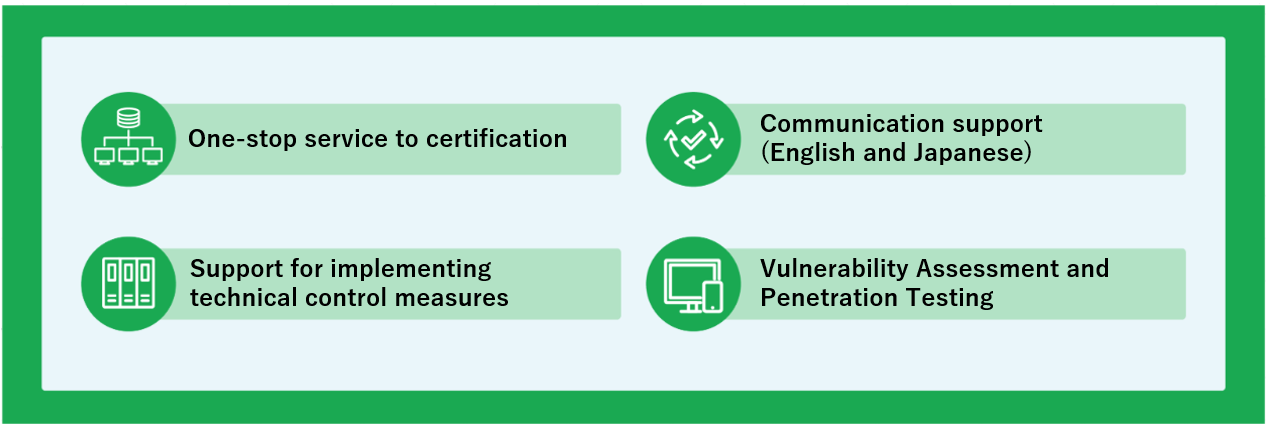Why IDE?
The motivation to obtain ISO27001 varies by company, but particularly among Japanese companies, there is a noticeable trend to acquire it at overseas locations as part of global compliance and risk management. In such cases, local Japanese companies face challenges because the business environments in Japan and Europe differ significantly, and review points by the certification bodies for ISO27001 are also different, making it impossible to directly apply the ISMS related documents established in Japan.
For example, while resources such as budget and employees are abundant in Japan, they are limited in overseas local subsidiaries, which restricts the ISMS controls that can be taken. If you are renting a shared office, physical measures depend on external contractors, so the ISMS must meet the passing standards based on those management controls. Additionally, in Europe, vulnerability assessment and penetration testing are likely to be required for companies providing IT products and services in order to obtain ISMS certification.
Our ID Group is thoroughly committed to establishing and strengthening its global compliance and risk management systems. We possess a wide range of knowledge and network in this regard.
In fact, we obtained it effectively in a short time. We utilize strong partnerships with ISO 27001 consulting companies, assessment bodies, and certification agencies to provide end-to-end support up to the point of obtaining certification.

(*) Vulnerability assessment and penetration testing are likely to be required for companies providing IT products and services in order to obtain ISMS certification.
What is ISO 27001?
ISO 27001 is the global standard for information security. With the ISO 27001 certification or ISMS (Information Security Management System) certification, you show that you meet the requirements around information security. It allows you to demonstrate to stakeholders that your information security meets high requirements.
Information security is important for a number of reasons. It ensures that:- confidential information remains private and is only accessible to authorized individuals (confidentiality);
- information is accurate and complete, and has not been tampered with or modified in any way (integrity);
- information is available to those who need it when they need it (availability).
Overall, information security is critical for protecting sensitive information, maintaining the trust of customers and partners, and ensuring compliance with legal and regulatory requirements. An ISO 27001 certification is therefore of high value.
ISO 27001 Requirement
The standard describes the requirements for setting up, implementing, maintaining and continuously improving an Information Security Management System (ISMS).The main requirements of ISO 27001 are:
- Context analysis: The organization must understand the internal and external environment to determine the scope and objectives of the ISMS.
- Risk assessment and risk treatment: The organization must identify the risks that affect information security and take measures to deal with them.
- Security controls: The organization must implement, regularly evaluate and update custom security controls.
- Management responsibility: Top management should provide resources and support for the ISMS and be actively involved.
- Performance evaluation: The organization should regularly evaluate the performance of the ISMS to continuously improve the system.
- Continuous improvement: The organization must continuously strive to improve information security and meet the changing needs of stakeholders.
